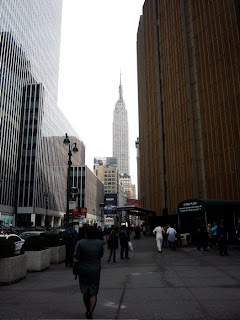E. L. Doctorow's Homer & Langley
At the outset of the story Homer and Langley live the typical privileged life of Gilded Age New Yorkers, sons of a prominent physician and his wife. After the flu epidemic claims their parents, Homer comes to depend more on Langley, a man who mind is damaged by mustard gas while fighting in World War I. As the Jazz Age unfolds, they continue to enjoy the world at large and employ a company of rotating housekeepers, though they stumble in their relationships with women. The Great Depression brings new challenges, but they're agile in adapting creatively to each decade. Hearing about the famous "rent parties" popular with their neighbors, they decide to host tea parties in their mansion. Yet, troubles start to accumulate, so the speak, as Langley brings home odds and ends as well as every single edition of the daily newspaper. Homer can only hope for the best with his clearly deranged sibling.
Unlike their real counterparts, these fictional brothers live beyond the late 1940s and through the 1960s, long enough for a band of hippies to discover and embrace them. They meet one another at an anti-war rally in Central Park. To the counterculture the long-haired brothers in their old fatigues and dungarees looked attractive as alternatives to bourgeois culture:
"And when these children-there were five who peeled off from the larger group and walked up the steps into our house, two males and three females-saw of what a warehouse of precious acquisitions it was comprised, they were moved beyond measure. I listened to their silence and it seemed to me churchlike."
While Doctorow clearly has fun weaving events of American history in and out of the story of the Collyer brothers, especially when hippies and Prohibition gangsters are involved, he nevertheless gently handles his sympathetic narrator, our blind storyteller Homer. As he begins to lose his precious hearing also, the story lifts out of the circumstances of the Collyers to reflect on the nature of consciousness itself. All of us may be shuttered in our mansions, in one way or another.
Images by Walking Off the Big Apple. The Collyer Brothers mansion at 2078 Fifth Avenue (corner of 128th Street) was torn down as a fire hazard. The vacant lot was turned into a vest-pocket park that is now operated by New York Parks. See more about the real-life Collyers at the Parks' website for the historical sign.







A guilty pleasure for me over the years has been Marcia Davenport's "My Brother's Keeper," a 1950s novel based on the story of the brothers. Taking the discovery of the dead men as a starting point, her book weaves together a narrative that purports to explain their reclusivity and why many of the "collectibles" found their way into the house. She overwrites, but sometimes Doctorow does too. Written less than 10 years after the brothers died, the book belongs to an earlier tradition of reality-based urban fiction that lacks the historical sweep, or would that be presumption, of post-1960s works.
ReplyDeleteThanks for mentioning Davenport's book, blackoystercatcher. Now, I will look for it at the bookstore. I've been thinking about the general issues of hoarding and accumulation, wondering how to balance my own tendency to collect books and other things I like to accumulate and bring home.
ReplyDeleteI'm always a little scared of becoming like the Collyer Brothers myself. Luckily, my friend Peter recently reminded me that Einstein said, "Out of clutter, find simplicity. From discord, find harmony. In the middle of difficulty lies opportunity." Let's hope so...
ReplyDeleteI (we) have rationalized large-scale, profligate collecting by doing what we can to turn it into a public activity; in other words, opening collections to others. This reframes solitary accumulation into social practice, and also brings considerable benefits to the collector, especially in terms of the community that coalesces around the collection.
ReplyDeleteBack to the discussion about hoarding and collecting - Thanks, blackoystercatcher, for your fine comment about communities coalescing around collections. Brilliantly succinct. I realize you may have thought about these issues for some time.
ReplyDelete